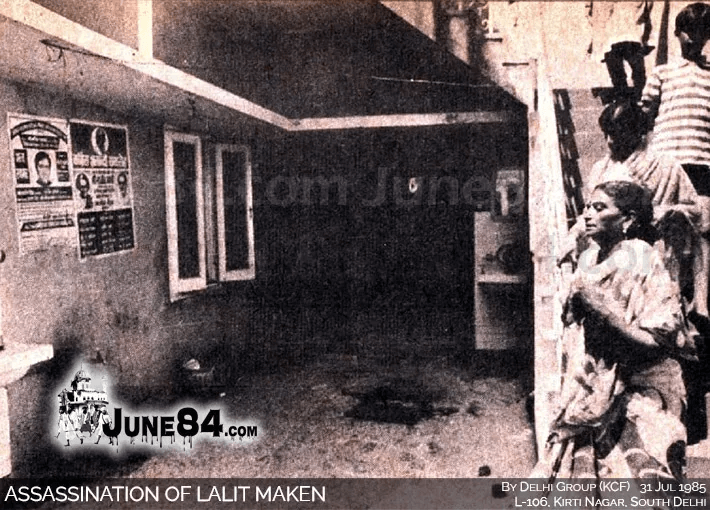
The assassination of Lalit Maken remains one of the most disturbing and tragic events in India’s political history. Lalit Maken, a prominent Congress leader and Member of Parliament, was a symbol of youth politics and political vigor in the 1980s. His untimely death sent shockwaves through the nation, raising questions about political violence and security for public figures.
Who Was Lalit Maken?
Lalit Maken was a rising star in Indian politics during the 1980s. Known for his strong oratory skills and firm stance on various political issues, lalit maken had emerged as a key figure within the Indian National Congress. He represented a new generation of leaders who sought to make a difference in a turbulent political landscape.
Maken’s political career was marked by both support and controversy, as he was often associated with hardline policies and was known for his role in the aftermath of the 1984 anti-Sikh riots. His influence made him a target for political rivals and extremist groups.
Details of the Assassination of Lalit Maken
The assassination of Lalit Maken took place on July 31, 1985, in New Delhi. He was shot dead near his residence, along with his wife, Geetanjali, in a calculated attack by suspected Sikh militants. The brutal killing shocked the nation and highlighted the growing tensions and violence in India during that period.
The assassins were allegedly seeking revenge for the 1984 anti-Sikh riots, which many believed Lalit Maken had indirectly supported or failed to prevent. His lalit maken death was seen as a retaliatory act that deepened communal and political divides in the country.
The Aftermath of Lalit Maken Death
The lalit maken death had far-reaching consequences beyond the immediate tragedy. It intensified the already volatile political atmosphere in India, particularly between Sikh groups and the central government. The incident prompted an increase in security measures for political leaders and brought national attention to the dangers of political violence.
Investigations into the assassination revealed a complex network of militant groups and political conspiracies, underscoring the challenges India faced in maintaining law and order during that era. The assassination also became a case study in the vulnerabilities faced by public figures in India.
Impact on Indian Politics and Society
The assassination of Lalit Maken marked a dark chapter in Indian politics, reflecting the deep-seated divisions and unrest in the country. It heightened fears among politicians and citizens alike about the rise of extremist violence and political retaliation.
In the years following lalit maken death, the Indian government intensified its efforts to combat militancy and improve intelligence and security frameworks. The event also spurred public debate on political accountability and the role of leaders in preventing communal violence.
Legacy of Lalit Maken and Lessons Learned
Despite his controversial political stance, Lalit Maken’s legacy continues to evoke strong emotions and reflections on the nature of political conflict in India. His assassination is a grim reminder of the consequences of political polarization and violence.
The assassination of Lalit Maken serves as a cautionary tale about the cost of political unrest and the importance of protecting democratic institutions and leaders. It calls for ongoing efforts to foster dialogue, tolerance, and security in a diverse society.
Conclusion
The assassination of Lalit Maken is a tragic event that left a lasting impact on Indian politics and society. From the first reports of Lalit Maken’s violent death to the decades of political repercussions that followed, this episode underscores the dangers of extremism and the fragility of political stability. Understanding this incident helps in appreciating the complex political history of India and the importance of peace and security for its leaders.

